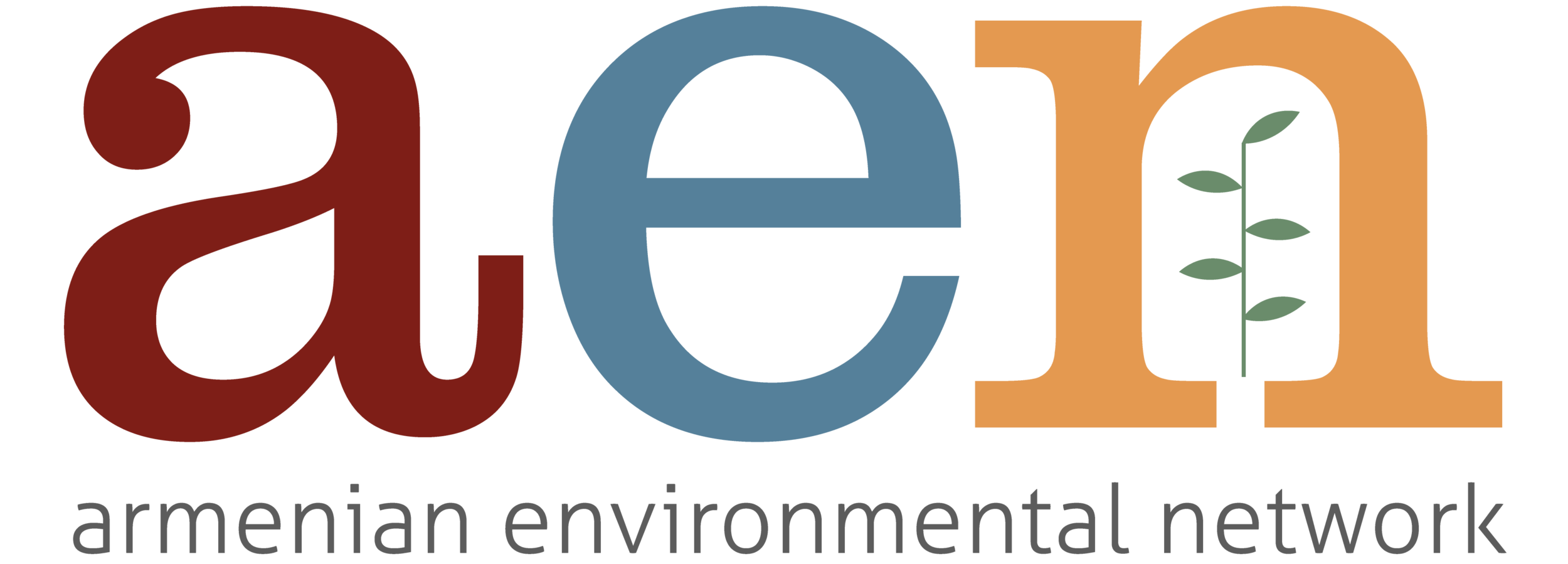AEN launches IWMP
by Kirk Wallace, AEN Armenia Office Director
AEN launched its first major project recently, in the town of Berd, in Tavush marz, in Northern Armenia. We call our project IWMP or Integrated Waste Management Project. AEN is implementing this project with two partner organizations, Green Lane NGO and Urban Foundation for Sustainable Development (UFSD). It is being funded primarily by the Norwegian government with additional funding by the Trust for Mutual Understanding and promised funding by the Jinishian Foundation. We are still seeking funding for the landfill component of the IWMP, which I will detail in a following post.
The Berd subregion is known colloquially as Shamshadin. It is, I believe, one of Armenia’s most beautiful areas and has aspects that make it unique in Armenia. It has been routinely neglected, in spite of the fact that it shares the longest border with Azerbaijan. It is a mountainous area, rich in fruit trees, berry bushes, honey and other local specialties. It is also a favorite area of Tim Straight, the Norwegian Consul, who first introduced me to Berd. Tim is attempting to help transform the area from a neglected nether region to a destination spot for eco-tourists and Diasporans. In this regard, Tim created the Shamshadin Development Initiative (SDI) of which AEN is a part.
AEN’s IWMP seeks to accomplish several objectives. The primary objective is to help the region create a sustainable system to collect, reuse, recycle and/or deposit their solid wastes. In conjunction with this objective, AEN/Green Lane/UFSD are implementing programs designed to train local teachers in providing environmental education to children, initiating a public service campaign on recycling and composting for citizens of the region, conducting workshops in composting and reuse of solid wastes, providing recycle bins for plastic bottles, and helping streamline the waste management services. An environmentally sound, appropriate technology landfill will be constructed for deposition of all wastes not recycled or reused. A separate blog explaining the landfill will appear later.
This is a pilot project and nothing close to this has been attempted in Armenia, up to this point. If we are successful it is our hope that this approach can be replicated in other poor regions of Armenia. The IWMP has been designed specifically for regions poor in resources. Unique aspects of the IWMP include:
- Emphasis on public education – at least one year’s worth
- Emphasis on composting all organic wastes
- Designing program to function with limited resources
- Source separation of household wastes into component parts – plastic bottles, glass bottles, wet wastes (organics), remainder
- Mini-regional approach – covers multiple villages
- Construction of Armenia’s only environmentally sound, appropriate technology landfill.
With hard work and some good luck, we hope to become a leader in sustainable, sanitary waste management practices in Armenia. We will keep you up-to-date as the project proceeds.
